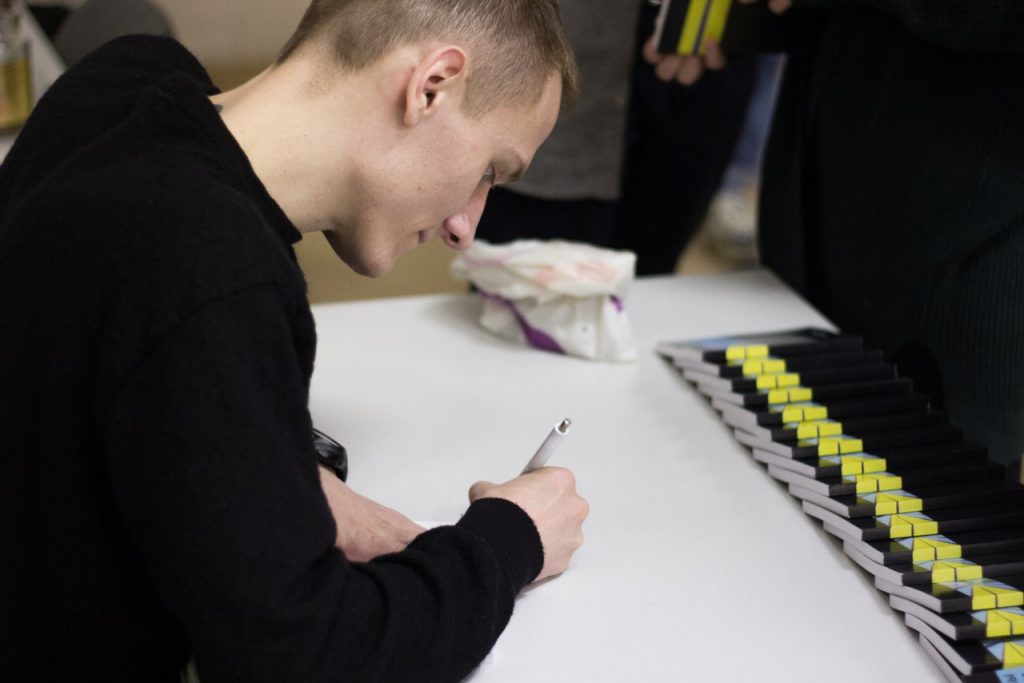Gegužės 4 d. 11 val. Prezidento Valdo Adamkaus bibliotekoje-muziejuje vyks Mikalai Dziadok knygos “Paralelinio pasaulio spalvos” pristatymas. Dabartinis Vytauto Didžiojo universiteto studentas, Baltarusijos politinis kalinys, Mikalai Dziadok savo knygoje novelių pagalba atskleidžia politinio kalinio gyvenimo skaudulius Baltarusijos kalėjimuose. Pristatymo metu knygos autorius papasakos apie jam inkriminuotus nusikaltimus, už kuriuos jam teko beveik penkis metus praleisti Baltarusijos kalėjime. M. Dziadok papasakos apie Baltarusijos anarchistų judėjimą ir atsakinės auditorijos klausimus.
Renginys vyks anglų kalba.
Plačiau apie renginį anglų kalba:
At May 4th, President Valdas Adamkus library holds the presentation of a book, written by former political prisoner and VMU student, Mikalai Dziadok.
“The Colours of the Parallel World” is a collection of stories, describing Belarusian prison system in a genre, which author calls “a prison analytics”. Systems of control, used to break a will of prisoners in Belarusian prison, insanity and sexual violence, deliberate pressing on political prisoners, orchestrated by KGB, systematic humiliations – all these realias find their description and scrutiny in 16 novellas, along with advices on how to behave yourself to save your mind from decrepitude, how to remain faithful to your ideas, how to revolt against unjust and opposing system while isolated.
During the presentation, author will describe his criminal case, which made him spent around 5 years in prison, tell about an anarchist movement in Belarus and informal prison hierarchies in post-soviet prisons and answer the questions of an audience.
“Prison is the most concentrated reflection of what we see outside it, like is being complementary to what is happening here. We all first go to school, then to army, then to work, there we are influenced by certain oppressive and exploitive institutions, after this if you step outside of the systematically designated frame for you and pose yourself against the system, then you are being oppressed again by risking to be jailed.
People who come to work in prison and behave sometimes worse then criminals already inside it, they were educated in our society and absorbed its norms and values. When we speak of reforming the prison, we must think about radical reforming of whole society.”
Language of a presentation: English

